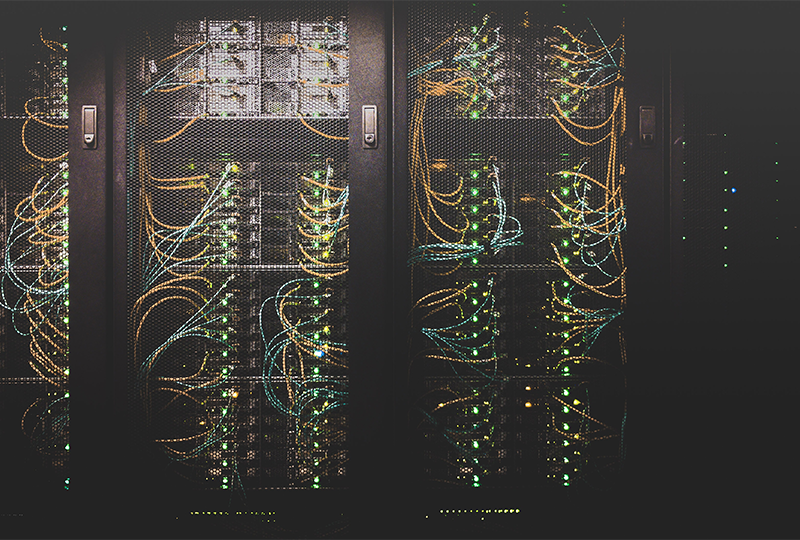System Administrator Vs. System Engineer: Key Differences And Similarities
12 Jan, 20245 minutesWhen starting out in IT Recruitment you are confronted with numerous job titles that sound v...

When starting out in IT Recruitment you are confronted with numerous job titles that sound very similar at first but have distinct differences when you take a closer look. So, I found myself asking the question: “What’s the difference between a System Administrator and a System Engineer?”
In the realm of IT infrastructure management, the roles of System Administrator and System Engineer stand as pillars of stability, ensuring the seamless operation of organizations' technological ecosystems. While these titles may seem interchangeable to some, they represent distinct responsibilities, skill sets, and focal points.
In this blog post, we'll delve into the nuances of each role, highlighting their unique characteristics, and exploring how they collaborate to ensure the efficient functioning of complex systems.
What is a system administrator?
The branch of engineering known as system engineering is responsible for the conceptualisation, design, development, and technical administration of various systems or computers. A system engineer is someone who works with many teams and experts to create an effective system that will produce the desired results. Their primary responsibility is to maintain and manage the day-to-day operations of servers, networks, databases, and applications. System Administrators are focused on ensuring the availability, reliability, and security of IT systems. They handle tasks such as user management, software installations, system updates, backups, and troubleshooting. Essentially, System Administrators are responsible for keeping the lights on and resolving issues that arise in the IT infrastructure.
In this multidimensional digital environment, they play a crucial role and frequently collaborate with the project manager. A system engineer will be deeply knowledgeable about contemporary systems and networking and will be involved in every stage of the systems' development.
Here are some major duties and roles of the System Engineer:
- From an architectural standpoint, aiding the entire development process entails planning, designing, and budget forecasting.
- Maintaining up with industry standards and taking notes on the procedure and other tools used during development for upcoming improvements
- Designing a perfect system based on the customer’s or project manager’s recommendation.
- Conducting the total system analysis while maximizing the output considering the program syntax, structure, etc…
Top Skills and Tools Needed for Systems Administrators
As one of the most versatile roles working with computers and servers, Systems Administrators can set themselves up for success by gaining experience within a wide range of software and tools they might be called upon to utilize. These include:
- Microsoft Office 365
- Programming and Scripting Languages like Python, HTML and Javascript
- Structured Query Language (SQL) to support with database management
- Cloud technology, such as Microsoft Azure or Amazon Cloud Services.
What is a system engineer?
A System Administrator is an Admin who administers and maintains the System, as the name suggests. The abbreviation for the system administrator is Sysadmin. The system administrator is concerned in the continuing maintenance of those systems and networks, whereas the system engineer focuses on developing and building systems.
They oversee system security, and uptime, and make sure that needs align with available funds. A bachelor's degree in IT or software engineering is required to work as a system administrator. And you should continue to advance your technological knowledge. . They often collaborate with various teams, including developers and network administrators, to ensure a seamless integration of hardware, software, and networking components.
Roles & Responsibilities of a System Administrator
- The major duty of the System Admin is to provide support to the individual users which include internal employees and external customers
- As a sysadmin, you are required to troubleshoot or fix any issues in the system operation
- He/She is mostly involved in the documentation process
- Continuously monitors the system and security functions of the system.
- System Admins should ensure the proper backup and recovery plan
- Check the compatibility of the system and make recommendations to the system engineer
- Database management, patching, and installations
Top Skills and Tools Needed for Systems Engineers
The technical elements of IT are a must-have for any Systems Engineer, in addition to the skills that come with leading a cross-functional team. Some of these top skills include:
- Linux operating systems and UNIX
- Windows Server
- Project planning methodologies such as Agile, Scrum, Jira and Kanban
- Computer Science Principles
- Proficient coding ability
- Ability to communicate with multiple stakeholders
- Strong leadership skills
Here are the key differences between a system engineer and a system administrator:
- System engineers focusing on creating and improving systems
- System administrators manage the on-going support of a system
- System engineers use these stages in work - task definition, conception, design, and implementation
- System administrators manage and support systems through user administration, maintaining systems, documenting operations, backing up or recovering files, security administration, and data and network administration
- System engineers have higher salaries than system administrators
In short, a system engineer is a creator, and a system administrator is a manager. Both technical positions involve a close relationship and in small organizations, a single person does both jobs.
Collaboration and Synergy between a system engineer and a system administrator:
- System Engineers design solutions that align with the organization's needs and growth projections. System Administrators then implement and manage these solutions in the day-to-day operations.
- When issues arise, System Administrators rely on the design knowledge of System Engineers to understand the underlying architecture, aiding quicker resolution.
- System Engineers design with optimization in mind, and System Administrators provide real-world insights on performance bottlenecks and areas for improvement.
- System Administrators implement security protocols based on the guidance and best practices set by System Engineers to ensure a robust defense against threats.
In Conclusion
In the dynamic landscape of IT, both System Administrators and System Engineers play pivotal roles in maintaining the health and functionality of an organization's technical infrastructure. The System Administrator focuses on the operational aspects, ensuring smooth day-to-day functioning, while the System Engineer designs, plans, and strategizes for long-term success. Their synergy is crucial for businesses to thrive in a digital world, as they work together to build, optimize, and secure the technology that drives modern organizations.










